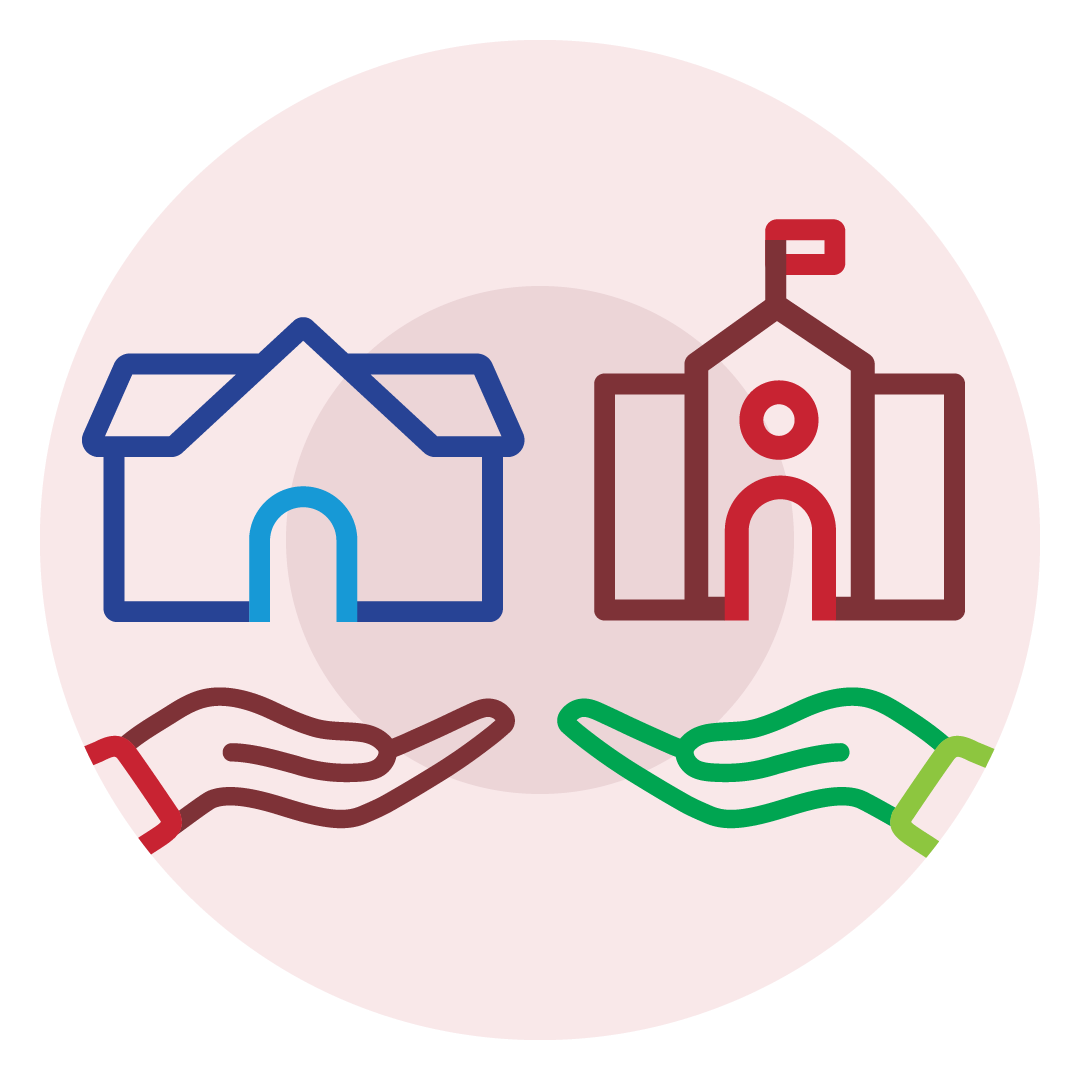NON-STATE ACTORS IN EDUCATION
Regulations tend to focus on registration, approval or licensing (98%), teacher certification (93%), infrastructure (80%) and pupil/teacher ratios (74%).
Regulations are least likely to focus on quality or equity: 67% of countries regulate fee setting, 55% prevent selective student admission procedures in non-state schools, 27% ban profit making and only 7% have quotas supporting access of disadvantaged groups.
Explore the policies in your country using the menu on the right.
Drawing on the Concept Note of the 2021/2 GEM Report, the 2021/2 Profiles Enhancing Education Reviews (PEER) on non-state actors in education aim to summarize the types of provision and regulations of non-state actors (NSAs) in education at the country level from the most recent available sources.
The profiles respond to two key questions:
- How are non-state actors engaged in education provision within a country’s education system?
- What laws, acts, policies and strategies exist which govern and regulate non-state actors’ engagement in education provision?
The profiles are primarily prepared through a review and synthesis of national regulations, including laws, policies and decrees, as well as sectoral or development plans. In this edition of PEER, all countries are covered, including those of the European Union and its neighbouring countries, whose education laws and policies are available in the European commission’s Eurydice descriptions of national education systems.
All profiles provide a national overview of NSAs in education for 211 education systems and focus on all education levels from early childhood care and education (ECCE) to tertiary education. Each profile is about 5,000 words and available in English, French or Spanish depending on the language of the country. The length also depends on education governance structure, as countries with federal or highly decentralized structures may require the profiles to highlight regional or local differences in provision and regulations.
The profiles were primarily prepared through desk review by the GEM Report team, complemented by commissioned research to add subnational examples for selected countries with complex institutional structures. For all profiles on the website, when they are drafted, countries are invited through their delegation at UNESCO to review and update the information. When this step of the process is complete, it is indicated on the website on the relevant page of the country’s profile with a blue tick.
Available countries: 211 countries available (see right-hand menu "This theme in countries" and filter by region).
CONTENT OF 2021/2 PEER ON NON-STATE ACTORS IN EDUCATION
Each profile is structured in three parts: Terminology, Typology of education provision and Governance and Regulations of non-state (NS) education provision.
- Terminology
This section explains if and how the country’s main education law describes and/or defines NSAs at all education levels.
- Typology of provision
This section distinguishes between state and non-state provision to capture the most prevalent types of NSA engagement in formal primary and secondary education. Schools in each country are classified based on three categories, i.e. ownership, financing and management. Ownership is the dominant criterion that helps to distinguish between state and non-state schools.
- Governance and Regulations of non-state education provision
The section on governance documents how education systems are governed, including identifying the various national authorities responsible for governing and regulating NSAs at each education level and how the latter are envisaged in the country’s vision on education
The section on regulations provides information on the most recent education legislation, policies or decrees regulating non-state actors and their education provision at all education levels (from early childhood care and education to tertiary education) and in supplementary private tuition (private tutoring). This information focuses on regulations in the following areas and subsections
Entry/Establishment:
- registration, approval and/or licensing
- water, sanitation and hygiene (WASH)
Financial operation:
- profit-making
- taxes or subsidies
Equitable access:
- fee-setting
- admission selection procedures
- Policies for children and families from vulnerable groups
Quality of teaching and learning:
- curriculum and education standards
- textbooks and learning materials
- and teaching profession
- corporal punishment
- other safety regulations and COVID-19
Quality assurance, monitoring and accountability:
- boards
- reporting requirements
- inspections
- student assessments
- diplomas and degrees
- and sanctions
Supplementary private tutoring









